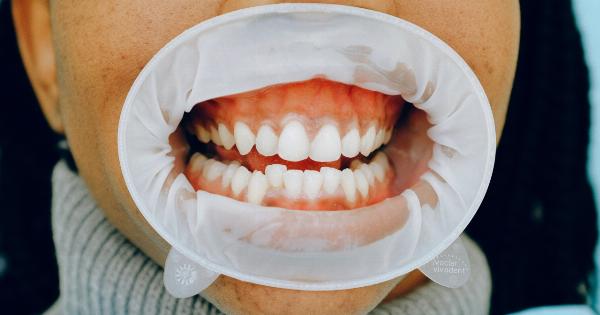Taking care of oral health is important at every stage of life, but it becomes even more crucial as we age.
Older adults face unique challenges when it comes to maintaining good oral hygiene, and it’s essential to address these issues to prevent oral diseases and maintain overall health. In this article, we will discuss the importance of oral care for older adults and provide some practical tips for maintaining a healthy smile in your golden years.
The Aging Process and Oral Health
As we age, our bodies undergo various changes, and our oral health is no exception. Some of the common oral health issues faced by older adults include:.
- Tooth decay: While tooth decay is often associated with children, older adults are also susceptible to cavities. The risk increases due to reduced saliva flow, which can be caused by certain medications or medical conditions.
- Gum disease: Gum disease is a leading cause of tooth loss in older adults. As we age, the gum tissues may recede, exposing the roots of the teeth to bacteria and making them more prone to infection.
- Tooth loss: Tooth loss is more common among older adults due to a combination of factors, including tooth decay, gum disease, and inadequate dental care earlier in life.
- Dry mouth: Many medications prescribed for age-related conditions can cause dry mouth, leading to discomfort, difficulty in chewing and swallowing, and an increased risk of dental problems.
- Oral cancer: The risk of developing oral cancer increases with age. Regular dental check-ups are vital for early detection and treatment.
The Importance of Oral Care
Maintaining good oral health has a significant impact on the overall well-being of older adults. Here are some reasons why oral care is crucial:.
- Preventing tooth decay: Proper oral hygiene practices such as regular brushing, flossing, and using fluoride toothpaste can help prevent tooth decay and cavities.
- Preventing gum disease: Good oral hygiene also plays a vital role in preventing gum disease. Brushing and flossing remove plaque, the sticky film of bacteria that causes gum inflammation and infection.
- Preserving natural teeth: Taking care of your teeth and gums is essential for preserving natural teeth. By practicing good oral hygiene, you can reduce the risk of tooth loss and the need for extensive dental treatments.
- Preventing dry mouth: Drinking plenty of water, chewing sugar-free gum, and avoiding alcohol and tobacco can help alleviate dry mouth symptoms and reduce the risk of dental problems.
- Early detection of oral cancer: Regular dental check-ups allow dentists to screen for oral cancer and detect any abnormalities in the mouth at an early stage. Early detection greatly improves the chances of successful treatment.
Oral Care Tips for Older Adults
Here are some practical tips to promote good oral health in older adults:.
- Brush at least twice a day: Use a soft-bristle toothbrush and fluoride toothpaste to gently brush your teeth and gums. Pay special attention to cleaning along the gumline and the back teeth.
- Floss daily: Clean between your teeth using dental floss or interdental brushes to remove plaque and food particles that your toothbrush may not reach.
- Use mouthwash: Rinse with an antiseptic mouthwash after brushing and flossing to kill bacteria and freshen breath. Look for alcohol-free options if you have a dry mouth.
- Stay hydrated: Drink plenty of water throughout the day to prevent dry mouth. If you experience constant dry mouth, consult your doctor for potential medication adjustments.
- Visit the dentist regularly: Schedule regular dental check-ups and cleanings to monitor your oral health and address any issues promptly. Your dentist can also provide personalized recommendations for your specific needs.
- Quit smoking: If you smoke or use tobacco products, quitting is essential for maintaining good oral and overall health. Consult with your healthcare provider for assistance in quitting.
- Follow a healthy diet: Eat a balanced diet rich in fruits, vegetables, lean proteins, and whole grains. Limit sugary and acidic foods and beverages that can contribute to tooth decay.
- Consider dentures or dental implants: If you have missing teeth, consult your dentist about options like dentures or dental implants to restore your smile and improve functionality.
- Practice good denture care: If you wear dentures, clean them daily, remove them at night, and soak them in a denture cleaning solution. Make sure to clean your mouth and gums before reinserting them.
- Stay informed: Keep yourself updated about the latest advancements in oral health care for older adults. Stay informed about new techniques, products, and practices that can enhance your oral health.
Conclusion
Maintaining good oral health is crucial for older adults to prevent dental problems, stay comfortable, and enjoy a high quality of life.
By practicing proper oral hygiene, visiting the dentist regularly, and addressing any dental issues promptly, you can ensure a healthy smile well into your golden years.





























